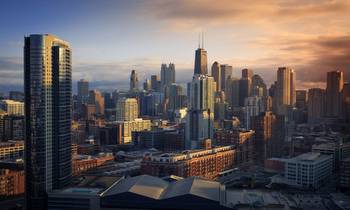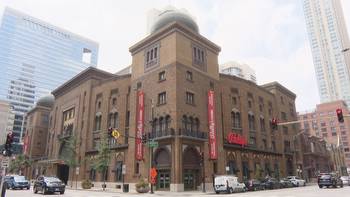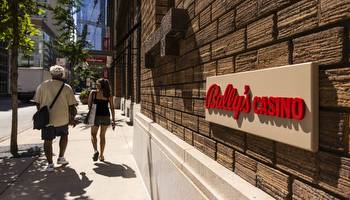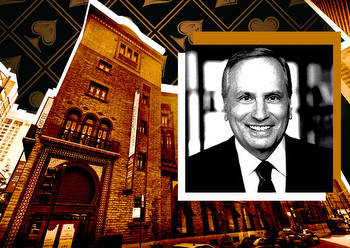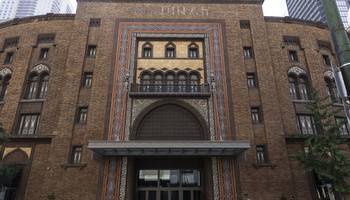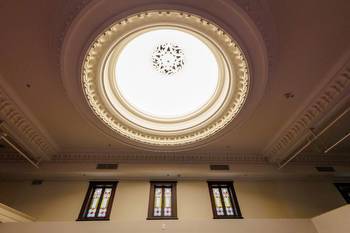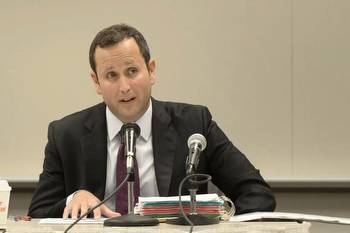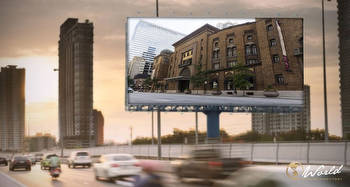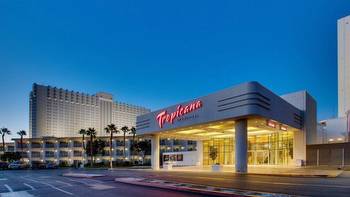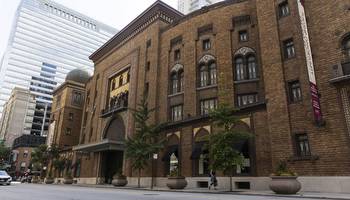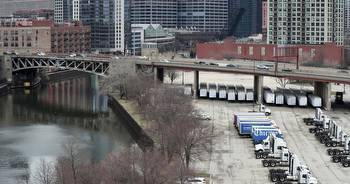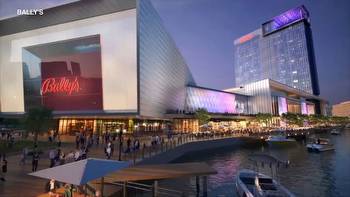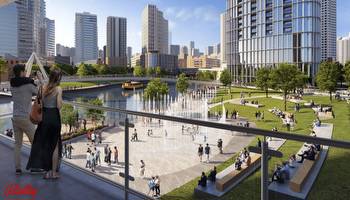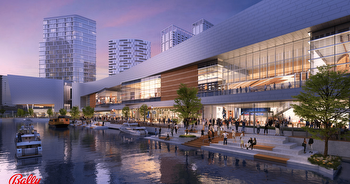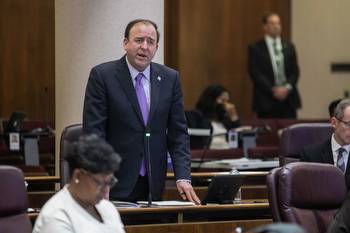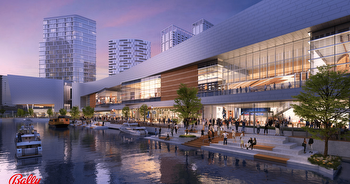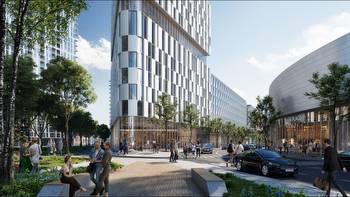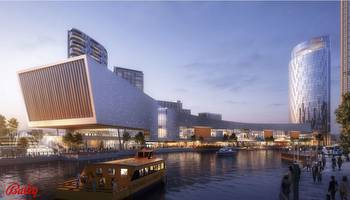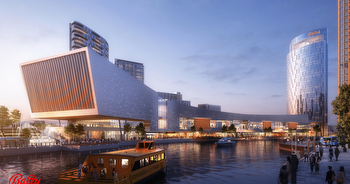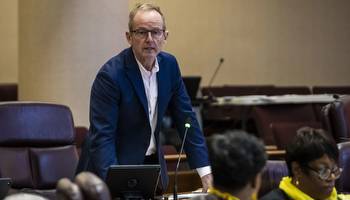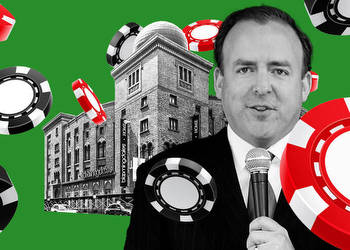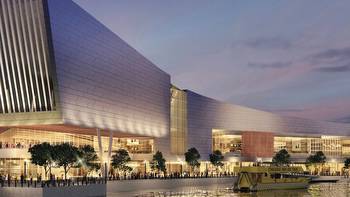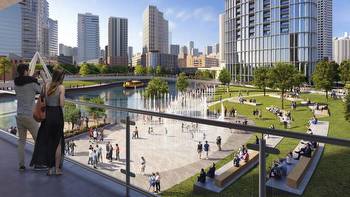Chicago: Bally's plans to build temporary casino at Medinah Temple approved by gaming board

State gambling regulators signed off on Thursday the initial steps toward the opening of Chicago's first casino, votingin favor of a license for Medinah Temple to serve as the home of a temporary gambling hall that developerBally’s hopes to open by June. The permanent building, to open its doors in 2026, will be built west of the Chicago River on the site of the Chicago Tribune’s Freedom Center printing plant.
City Council approved Bally’s as the Chicago casino licensee last May. Bally’s Chicago casino representatives unveiled the plan for the landmark building in July of 2022. The temporary casino at the Medinah Temple location could be open for up to three years.
Last summer, amid concerns from locals about what the casino’s temporary residency meant for the preservation of the historic building, Joyen Vakil, senior vice president of design and development for Bally’s, explained they planned not to intervene it.
"We are making sure that the building doesn’t get impacted, the façade of the building is not impacted. We are making literally no changes to the outside of the building with the exception of changing the signs where the Bloomingdale sign existed," he said, as reported by WGN9.
Bally’s plans to open at Medinah Temple by June remain uncertain. The Illinois Gaming Board is requiredto investigate and approve everyone involved in the project, from top investors to subcontractors working in the construction, which could stand in the way of meeting this timeline, notes Chicago Tribune.
The board voted 3-0 to approve supplier licenses for two corporate entities owned by real estate developer Albert Friedman to serve as Bally’s landlord at the century-old Shriner’s amphitheater, which most recently housed a Bloomingdale’s Home Store.
The decision to house a temporary casino at the River North landmark, which was not Bally’s initial choice, has been the source of some controversy. Critics have pointed to a $6,000 contribution Friedman made to Mayor Lori Lightfoot's campaign about two months before it became public that Bally’s planned to use Medinah Temple.
The campaign contribution was disclosed to the Gaming Board on the Medinah license applications. The mayor’s office has denied she had any involvement in the selection of the temporary casino site.
Thursday’s vote was just an initial public step in a process that could take months or years to complete. SinceGov. J.B. Pritzker signed a measure into law in 2019 vastly expanding gambling in Illinois, only one of six newly authorized casinos has begun operations - Hard Rock Casino Rockford, which opened at a temporary site in November 2021, nearly two years after its applications were submitted to regulators.
Bally’s filed its application with the state for a Chicago casino in August. During Thursday’s meeting, Gaming Board Administrator Marcus Fruchterdetailed the lengthy investigation process underway at the regulator but did not say when a hearing on Bally’s “preliminary suitability” for an operating license will be held, which is required before casino-related work can start.
After months of deliberation and some community pushback, the City Council in December gave approval for zoning changes needed to accommodate what would be the state’s largest casino, with an exhibition hall, a 500-room hotel, a 3,000-seat theater, 11 restaurants and 4,000 gaming positions, including slots and table games.
Among those who opposed the plan was Ald. Brendan Reilly, whose ward in and around downtown is home to Medinah’s Temple. Reilly and a handful of other aldermenraised concerns about traffic, safety and Bally’s financingfor the casino project, among other issues, in voicing their opposition and criticizing the Lightfoot administration for rushing the process.
Once the casino is up and running, the city’s share of revenue will be dedicated to shoring up its underfunded police and fire pension systems. The city has estimated it eventually will generate $200 million in annual revenue.








